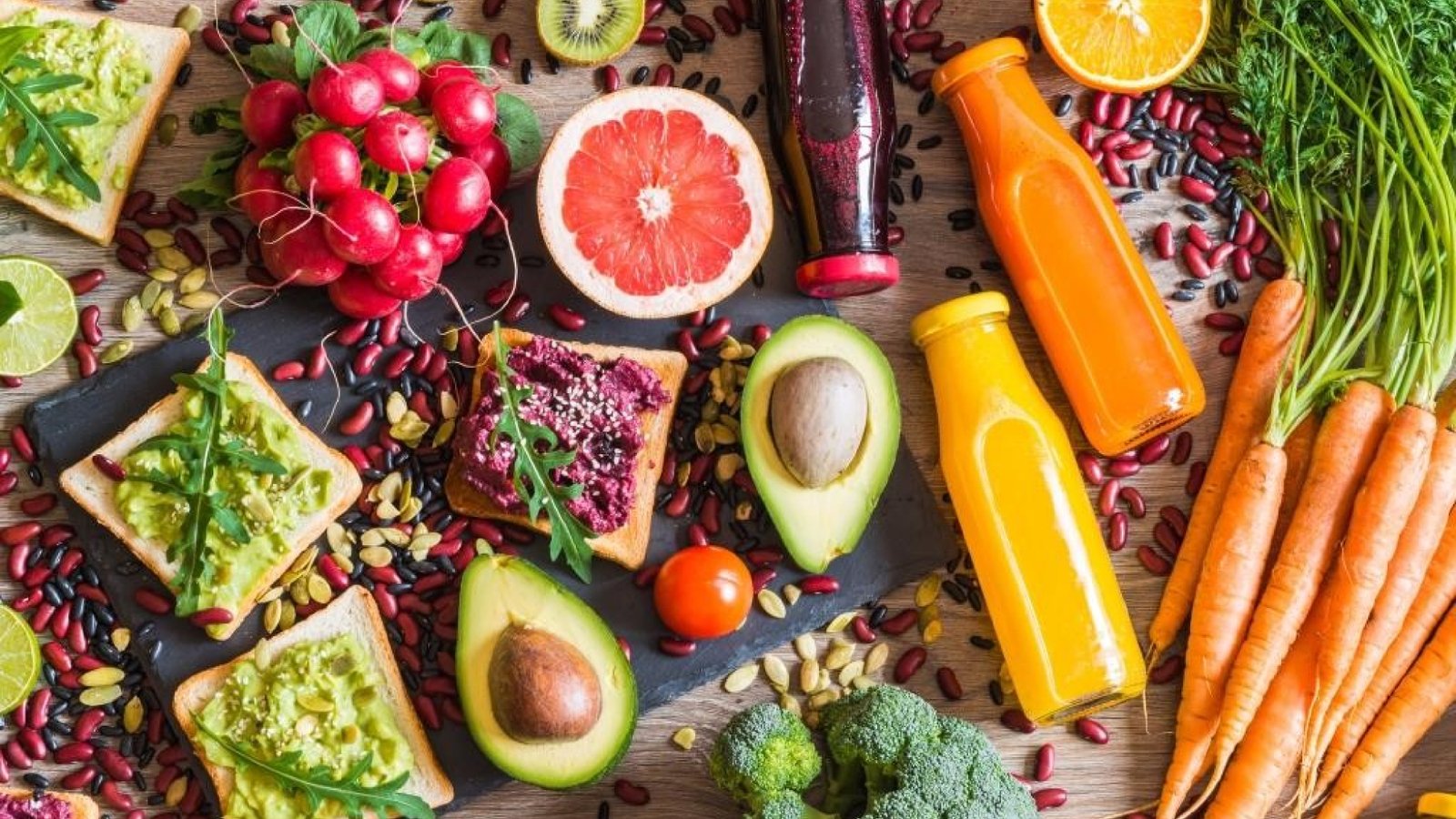
Functional Foods & Beverages: Health-Driven Trends in FMCG
There was a time when a snack was just a snack, a drink was just a drink, and your mother would chase you around with a glass of milk claiming it was good for your bones. Fast forward to today’s hyper-informed, label-reading consumers, and suddenly, even your breakfast bar is carrying a résumé longer than a startup founder’s LinkedIn profile: gluten-free, plant-based, gut-friendly, immune-boosting, and maybe even infused with adaptogens that sound like Marvel superheroes. Welcome to the era of the functional foods market, where eating isn’t just about satisfying hunger—it’s about optimizing life.
The global FMCG industry has always been a mirror of consumer behavior, and right now, consumers are obsessed with health, wellness, and longevity. From wellness products designed to de-stress and detoxify to nutraceuticals promising sharper brains and stronger immunity, and fortified beverages that pack vitamins into your daily hydration—every sip and bite is now a choice in the wellness economy. But what’s driving this transformation? Why is everyone suddenly looking at food like it’s a personal trainer? And more importantly, how can businesses thrive in this space without getting lost in a kale-infused, kombucha-scented haze? That’s where Blackwater—the sharp-eyed navigator of market intelligence—steps in.
The Rise of the Functional Foods Market
The functional foods market has evolved from being a niche category found in specialty stores to becoming a mainstream juggernaut. Consumers no longer want “empty calories”—they want every calorie to work harder. Think of it as a job interview: your morning smoothie isn’t just there to taste good; it better bring along its CV loaded with omega-3s, antioxidants, and probiotics.
What’s interesting is that this trend isn’t only rooted in dietary fads—it’s grounded in science, research, and the very real connection between food and health outcomes. The pandemic accelerated this shift dramatically, turning everyone into an amateur nutritionist with Google as their laboratory. Suddenly, immunity was not just a buzzword, it was a necessity. Brands that could offer wellness products with immune-boosting claims saw their demand skyrocket, while those stuck in the old-school “sugary snack” category began to look increasingly outdated.
For FMCG players, this is both an opportunity and a challenge. The opportunity lies in catering to health-conscious consumers who are willing to pay a premium for nutraceuticals and fortified beverages. The challenge? The market is saturated, the consumer is skeptical, and the science needs to be solid. That’s why smart businesses don’t just jump onto trends—they analyze them, validate them, and strategize around them. That’s exactly the expertise Blackwater brings to the table: cutting through the noise to provide clarity.
From Superfoods to Supermarkets
Once upon a time, quinoa, chia seeds, and matcha were exotic imports that only health bloggers whispered about. Today, they’re stocked right next to your everyday rice, bread, and tea. The functional foods market has democratized wellness, making it accessible not just to urban elites but also to middle-class families who want healthier options in their grocery baskets.
But here’s where the story gets witty: consumer expectations have gone from “this product is good for me” to “this product better taste good, be affordable, have a clean label, and make me feel like a better human being.” Quite the résumé for a humble breakfast cereal.
Fortified beverages have particularly taken off, largely because drinks are one of the easiest categories in which to add functional ingredients. Whether it’s vitamin D-infused water for bone health, electrolyte-packed coconut water for hydration, or kombucha claiming to rebalance your gut microbiome, the beverage aisle is now looking more like a wellness clinic. And let’s not forget the rise of plant-based milks fortified with calcium and B12, which are no longer “alternatives” but mainstream staples.
For FMCG giants and startups alike, the lesson is clear: if your food or drink isn’t doing something extra for the consumer, you’re not just behind the curve—you’re invisible. Blackwater’s research shows that consumers are rewarding brands that innovate intelligently rather than simply slapping on “superfood” labels.
Nutraceuticals: Where Food Meets Pharma
The buzzword of the decade? Nutraceuticals. A hybrid of “nutrition” and “pharmaceuticals,” nutraceuticals represent the convergence of food and medicine, or as consumers like to call it, “prevention rather than cure.” Instead of waiting for a prescription, people are turning to supplements, gummies, powders, and enriched snacks to keep illnesses at bay.
This isn’t just a wellness fad—it’s part of a global shift in healthcare economics. With rising medical costs, people are far more invested in self-care, and the functional foods market has become their frontline defense. For companies, nutraceuticals open up a billion-dollar opportunity, but with that comes the responsibility of credibility. False claims or weak formulations can backfire spectacularly, eroding trust and damaging reputations.
This is where Blackwater steps in, armed with market intelligence to help businesses navigate regulatory frameworks, consumer perceptions, and competitive landscapes. In a world where the line between food and medicine is blurring, having accurate insights is the only way to avoid being caught in the crossfire of skepticism and scrutiny.
The Psychology of Wellness Products
Consumers today don’t just buy products—they buy identities. A yoga mat, a reusable water bottle, and a pantry filled with wellness products all signal not just health-consciousness but also status and belonging to a “tribe” of mindful living. The functional foods market is being shaped as much by psychology as by physiology.
Fortified cereal isn’t just cereal—it’s proof that you’re a parent who cares deeply about your children’s development. A protein shake isn’t just a drink—it’s your badge of discipline in fitness. A turmeric latte? That’s your entry ticket to Instagram-worthy self-care rituals.
This intertwining of wellness and identity explains why branding in the functional foods space is just as important as the ingredients themselves. Consumers want products that fit into their aspirational narratives. Blackwater’s research shows that brands succeeding in this space aren’t just marketing nutrition; they’re marketing lifestyles. That’s a critical distinction, and companies that miss it will find themselves outpaced by competitors who “get” the culture of wellness.
Fortified Beverages: The New Everyday Essentials
Let’s pause for a sip of the action. The fortified beverages segment deserves its own spotlight because it perfectly captures the health-meets-convenience philosophy driving FMCG today.
Sports drinks, once the domain of athletes, are now pitched to office workers battling fatigue. Plant-based milks, once niche, are now mainstream, driven by lactose intolerance concerns and eco-consciousness. Even bottled water isn’t “just water” anymore—it’s “electrolyte-balanced,” “alkaline,” or “collagen-infused.” In the world of beverages, plain is passé.
But here’s the kicker: while consumers are hungry for innovation, they’re also highly critical. A fortified beverage must taste great, deliver real health benefits, and justify its price tag. Fail on any of these counts, and the brand risks being labeled a gimmick. That’s why businesses are increasingly turning to Blackwater—to sift through consumer sentiment, identify unmet needs, and develop products that go beyond hype.
Challenges in the Functional Foods Market
If this all sounds like a golden age for FMCG, hold that thought. The functional foods market is lucrative, yes, but it’s also fiercely competitive and tightly regulated. Consumers are smarter than ever, regulators are stricter, and social media can amplify skepticism at lightning speed.
For example, claims like “boosts immunity” or “improves focus” are heavily scrutinized, and without scientific validation, they can land brands in hot water. Add to this the challenges of supply chain management (superfoods sourced from across the globe), rising costs of raw materials, and consumer demands for sustainability, and suddenly, the functional foods space looks less like a health utopia and more like a high-stakes chessboard.
This is where businesses need robust market research. Enter Blackwater—the strategist that helps FMCG brands anticipate hurdles, analyze competitors, and craft smarter moves. In a space where one wrong claim can tank a product launch, reliable intelligence isn’t optional—it’s oxygen.
The Future of Functional Foods & Beverages
So, where is this kale-and-quinoa-powered rocket headed? The future of the functional foods market is likely to be defined by personalization, technology, and sustainability.
Personalization is already making waves, with DNA-based nutrition tests and AI-driven meal plans that recommend wellness products tailored to individual needs. Technology is enabling the creation of novel nutraceuticals and fortified beverages, from lab-grown proteins to 3D-printed supplements. And sustainability? Consumers now expect not only health benefits for themselves but also ethical, eco-friendly sourcing that ensures the planet stays healthy too.
For FMCG businesses, this is both thrilling and terrifying. The opportunities are immense, but so are the risks. Which innovations are worth investing in? Which consumer trends are fleeting fads? Which regulatory shifts could redefine the playing field? These are billion-dollar questions—and Blackwater has built its reputation on providing billion-dollar answers.
Why Blackwater Is the FMCG Industry’s Health Coach
In a world overflowing with claims, trends, and contradictory advice, FMCG businesses need more than inspiration—they need intelligence. That’s what Blackwater provides: cutting-edge market insights, competitive analysis, and consumer research that helps companies thrive in the functional foods market.
Whether it’s identifying the next big superfood, decoding consumer psychology behind wellness products, evaluating the science of nutraceuticals, or forecasting the demand curve for fortified beverages, Blackwater ensures that businesses aren’t just reacting to trends but leading them.
Because at the end of the day, the functional foods and beverages movement isn’t just about kale chips and turmeric shots—it’s about understanding the future of food itself. And if you’re serious about playing in this field, you need a partner who knows the game inside out. That partner is Blackwater.
Final Sip
The functional foods market isn’t a passing fad; it’s a seismic shift in how consumers view food, health, and wellness. From the psychology of wellness products to the science of nutraceuticals and the innovation behind fortified beverages, the FMCG industry is experiencing a health-driven renaissance. But navigating this landscape requires more than enthusiasm—it requires expertise.
Blackwater is that expertise. For businesses eyeing growth in the functional foods and beverages segment, the choice is clear: partner with intelligence, not guesswork. After all, in a market where every bite and sip carries meaning, the smartest ingredient in your strategy is insight.



